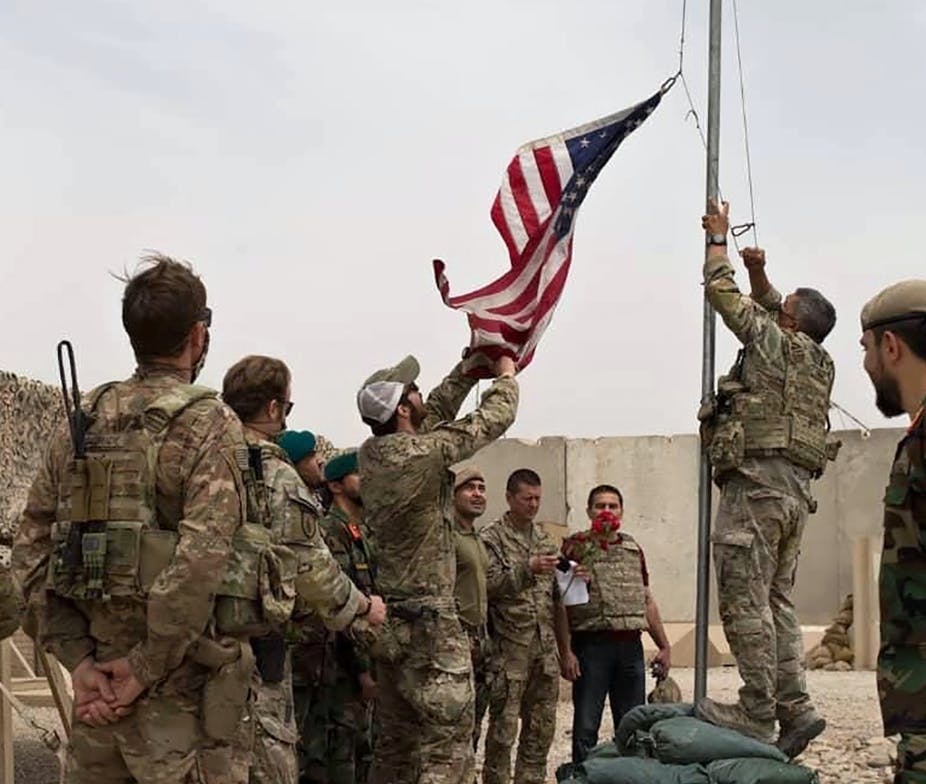Reports of fighting emerged on Tuesday from the one part of Afghanistan not under Taliban control, even as the fundamentalist group asserted its control on Kabul.
These happened hours after the final U.S. troops ended the country’s 20-year presence there.
Resistance fighters in Panjir reported an offensive by Taliban forces.
About seven or eight Taliban fighters died in the Monday offensive, according Fahim Dashti, a spokesperson for the forces in Panjir, speaking on a Whatsapp video.
He also noted that many people had been wounded on his side.
Read Also: Boy Injects Self With Lethal Mercury To Be Like Favourite X-Men Superhero
Panjir was the only district that was not taken in the Taliban’s offensive this month.
It was taken in 1996-2001, partially because the region was only accessible through a valley that was relatively easy to defend.
The Taliban made no comment. It has made relatively few assaults on Panjir even as it took over the rest of the country.
Meanwhile, Kabul residents reported calm in the Afghan capital on Tuesday, in the wake of the U.S. departure.
“The city is quiet,” said Lotfullah, who lives in central Kabul. Most shops in the Shahr-e Nau district were open, but only had a few customers, he said.
A few banks reopened their largest branches on Tuesday, just more than two weeks after the Taliban reconquered the country, and hundreds of people stood in line to withdraw money.
In the streets, few members of the Taliban were in evidence. Most were guarding buildings, mainly government offices.
One resident of the Dasht-e Barchi district in western Kabul said private and public schools had reopened for the first time since the Taliban took power in mid-August.
All pupils up to the sixth grade have returned to school, he said.
A day earlier, the final U.S. troops left Kabul, bringing to an end a tense evacuation mission and a 20-year war in Afghanistan.
The U.S. had begun planning its departure in 2020, after a deal between the Trump administration and the Taliban, and President Joe Biden carried on with the plan.
He had expected to hand control to a Western-backed government, not the people the U.S. had been fighting for two decades.
Taliban members were thus jubilant. Their forces had occupied the city’s airport, which had been the last haven of US control as Washington and its allies executed a desperate airlift operation for the last two weeks to get Westerners and their allies out of the country.
Taliban members guarding the airport now are virtually indistinguishable from the U.S. troops who had guarded it up until Monday, having raided abandoned supplies and making use of uniforms and equipment left behind.
“We’re writing history again. The 20-year occupation of Afghanistan by the U.S. and NATO ended this evening. God is great,” was one cry.
Meanwhile, Afghan women’s rights activist, Fawzia Koofi, called on the Taliban to rebuild the country in an inclusive way.
After 20 years of the presence of U.S. and NATO forces, and all the promises made to civil society, women and young people, that chapter has abruptly closed, Koofi said in a tweet.
“Our wealth is our young girls and boys. Taliban, hear us out: we must rebuild together! This land belongs to all of us,” she said.
Meanwhile, governments around the world are weighing how to deal with the Taliban.
While the EU is worrying about the impact of a new refugee surge, many of its member countries and the U.S. say they were still going to talk to the Taliban about evacuating any citizens still left in Afghanistan.
China, meanwhile, promised closer ties to Afghanistan and chided the U.S. for trying to impose its own values on another nation. (dpa/NAN)



Leave a Reply